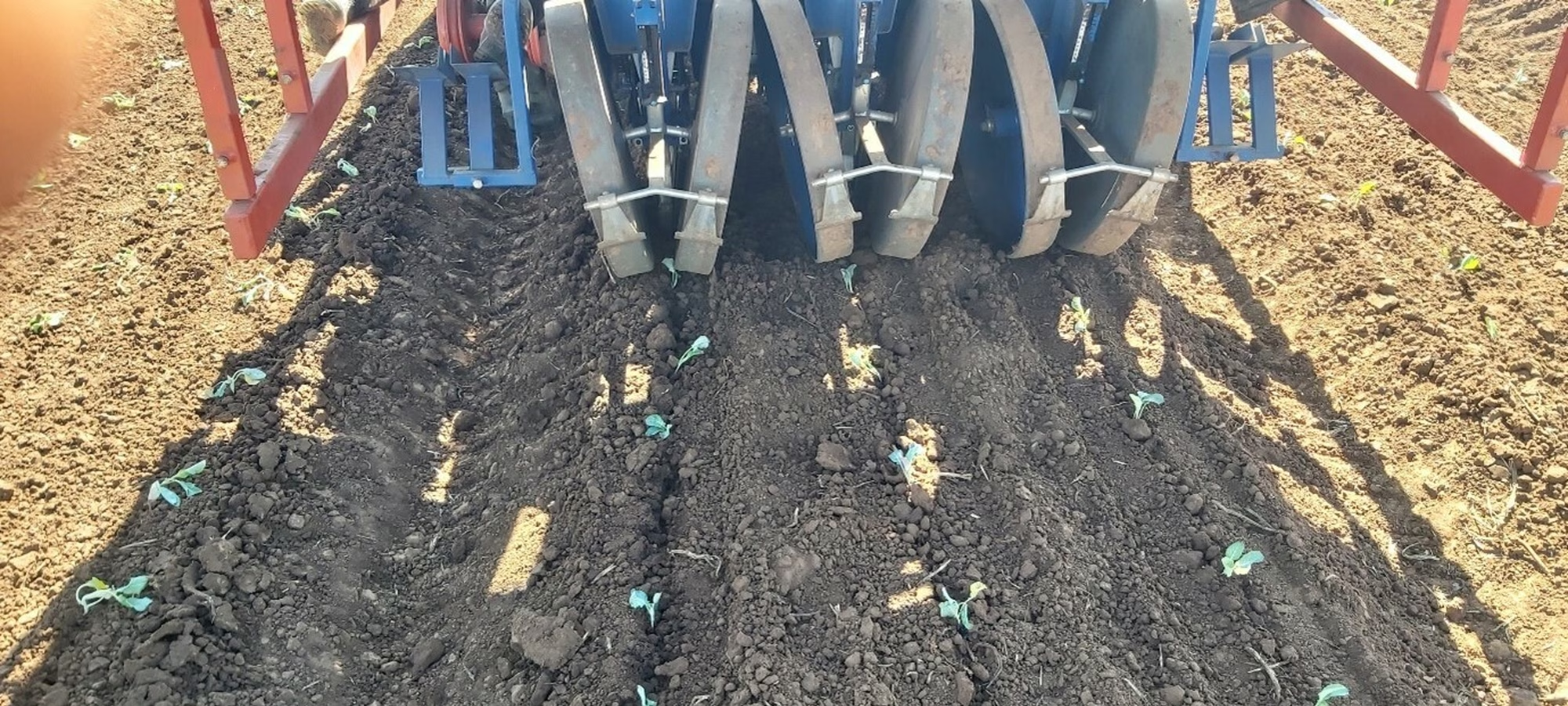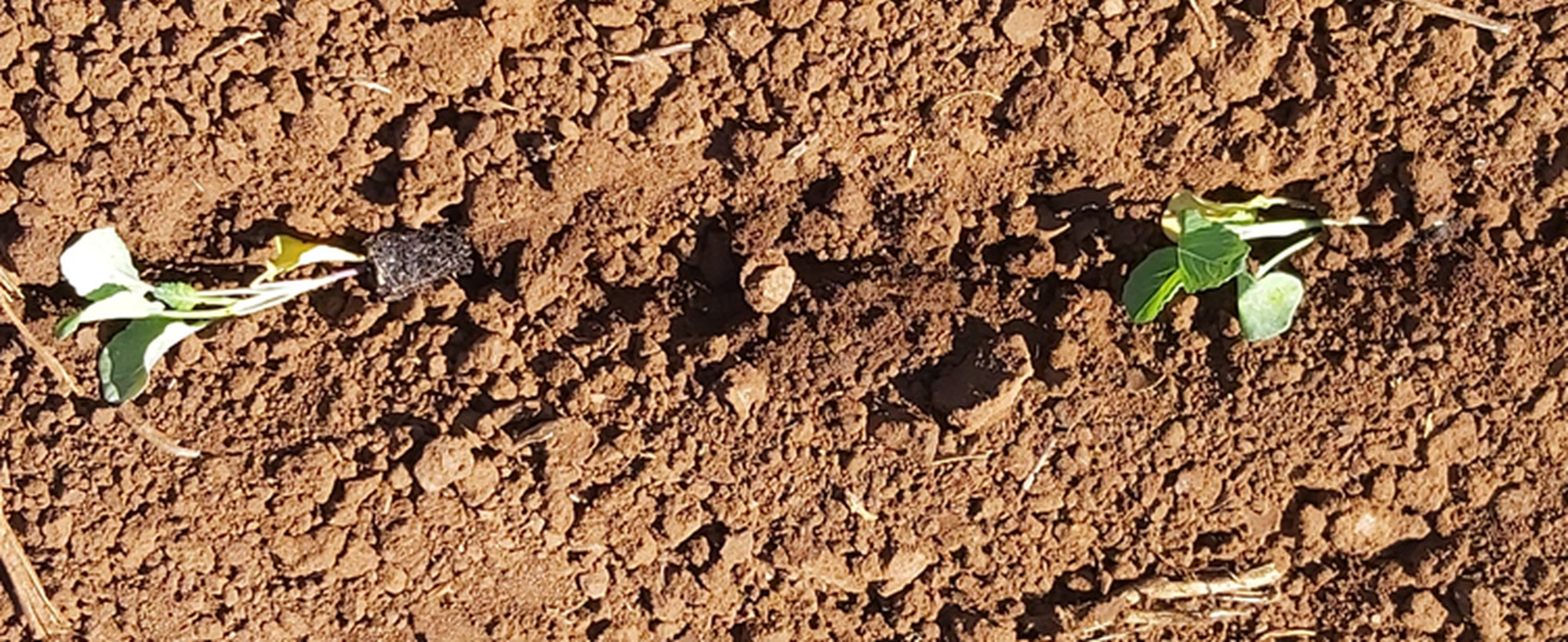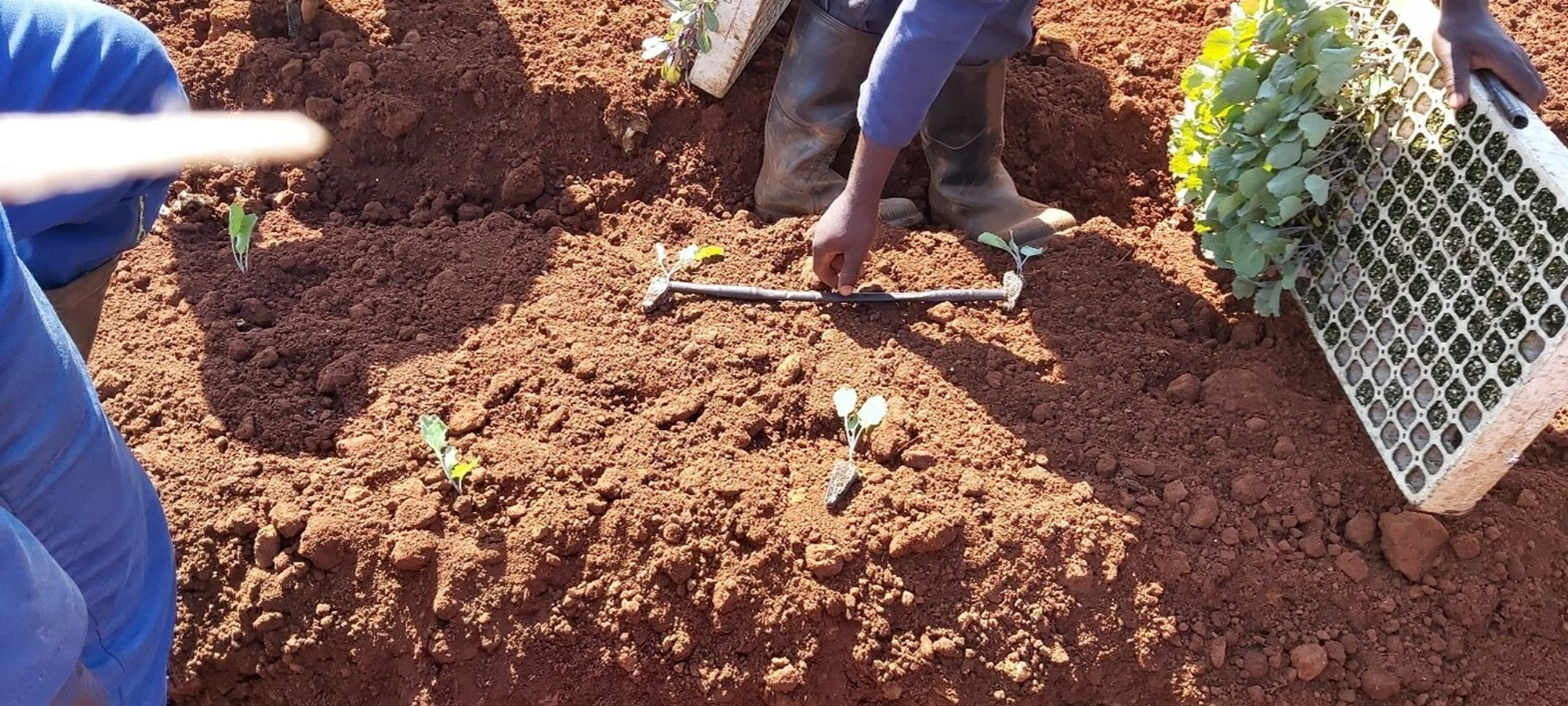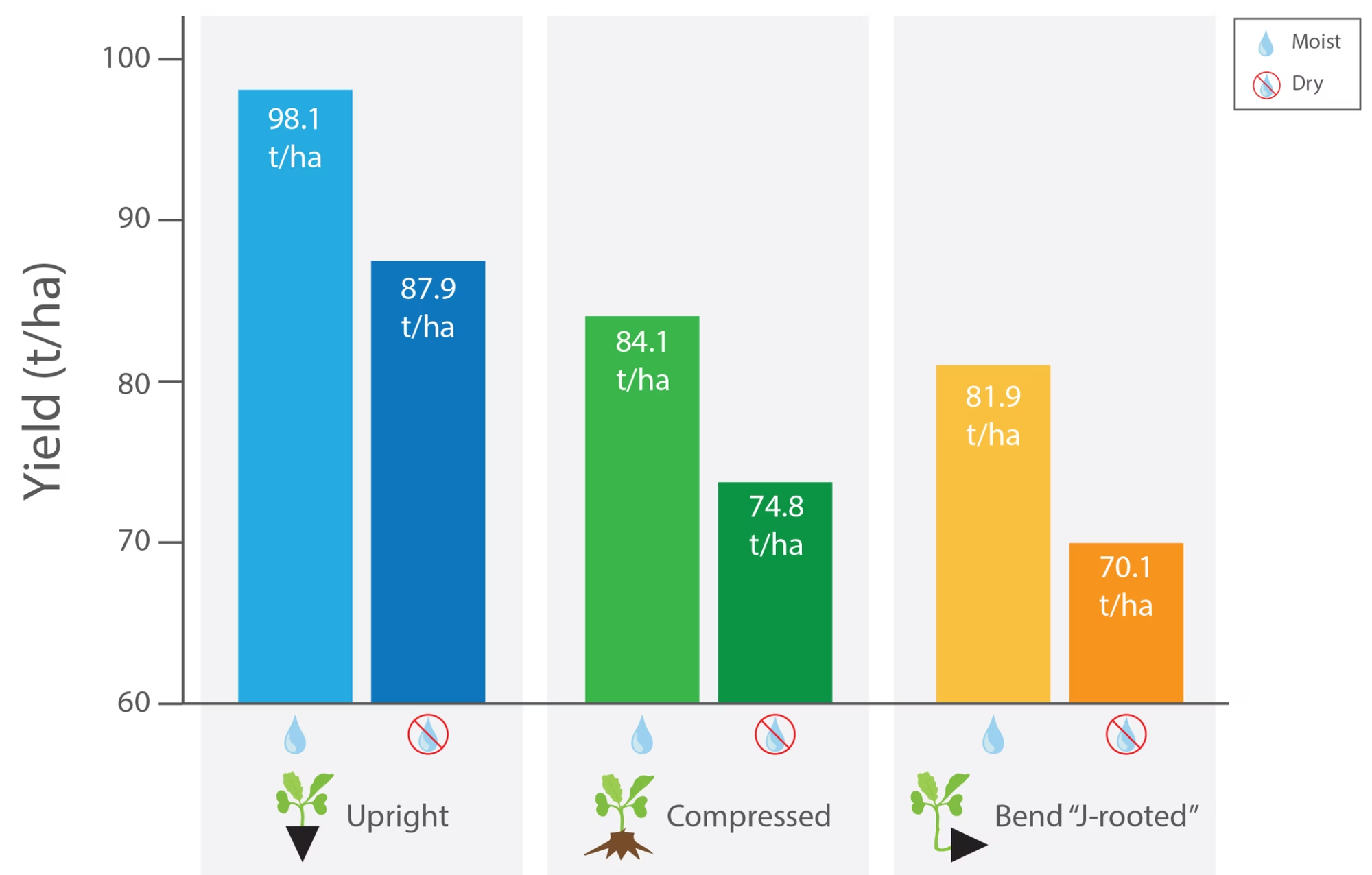Knowing how to transplant seedlings is essential to successful growth and production of abundant cabbage heads.
Cabbage seedlings can be planted by hand or mechanically. Mechanically, the planter will give you extremely accurate spacing and depth. It will be less labour intensive, but you will still need to inspect the plantings behind the planter to ensure the seedling is planted correctly. If the tractor is going too fast or too slow, the seedling can be damaged or planted too deep or too shallow.

Planter not set correctly: it plants too shallow. Seedlings not planted upright can lead to possible J-root plants.

You will need a mini hoe when you plant by hand to open the holes and then transplant the seedlings into the hole. The seedling needs to be planted straight up into the hole and not compressed, forced or planted sideways. You can use a hose as a measuring stick (40cm) to plant in and between rows. If possible, plant on a ridged bed: it will help with drainage and soil moisture.

What you should do and what to avoid when you transplant your cabbage seedlings.
The objective was to find out the various influences of handling seedlings. Not adhering to the abovementioned suggested planting guidelines could lead to possible yield losses.

- The control plants were planted correctly, upright, straight and at the correct moisture status. (Light blue bar).
- The dark blue bar shows they were planted correctly, upright, straight, but the seedling growth medium was already dry. (Dark blue bar)
- In the light green bar the seedling was forced (compressed) upright into the ground without a thorough cavity being made, which damaged the roots. The seedling was still moist. (Light green bar)
- In the dark green bar the seedling was forced (compressed) upright into the ground without a thorough cavity being made, which damaged the roots. The seedling was already dry. (Dark green bar)
- The light orange bar shows the seedling was moist but planted on its side, not upright. We call it J-rooted. (light orange bar)
- In the dark orange bar the seeding was dry and planted on its side: J-rooted. (Dark orange bar).
Standard rules to follow:
- Keep the seedlings moist before planting. This means seedlings must be transplanted as soon as possible and should be kept moist.
- Make sure the seedlings are planted vertically, not sideways. Avoid any possibility of a “J-root”.
- Make sure the plants are placed in the ground at a proper depth in a pre-formed hole and that the seedling is firmly closed so that the soil and the medium come into good contact with each other.
- Closely monitor, while planting cabbage seedlings, that the important link in the production chain does not become the weak link.
NOTE: The quality and handling of the seedlings plays an important role in a successful harvest. It is therefore critical that producers obtain quality seedlings, handle them correctly and manage them well. These transplanting guidelines also apply to all other brassicas (e.g. cauliflower, broccoli, etc).